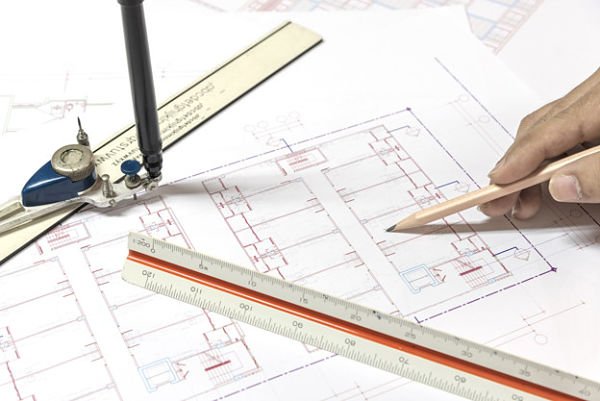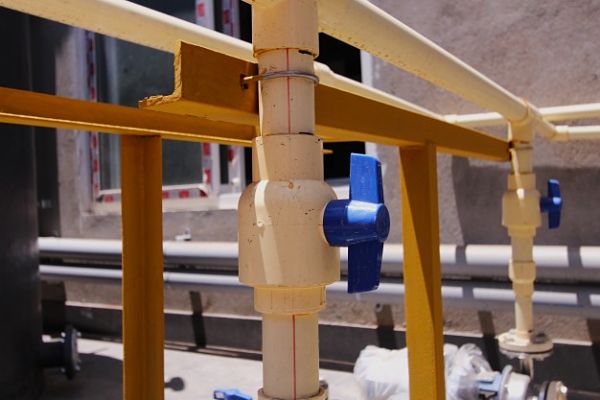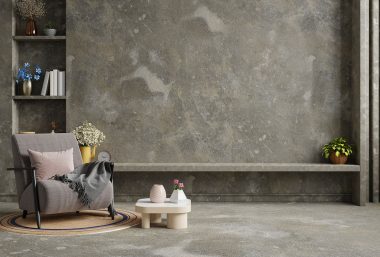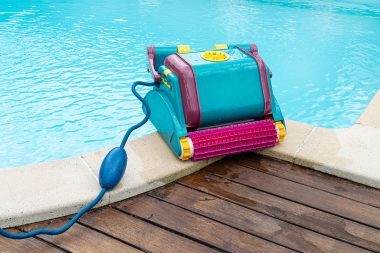Top blog articles
Planning a new house comes with a long checklist, and one of the biggest questions is: What’s the average cost of plumbing a new house? In this guide, we’ll explore the factors that affect your total plumbing repair costs, typical prices for common plumbing services, and tips to save money on plumbing expenses.
What is the average cost of plumbing a new house?

Plumbing isn’t just about running water to your sinks and showers. It’s an intricate system of supply lines, fixtures, and drainage that keeps your home running smoothly. On average, the cost of plumbing a new house ranges between $4.50 to $6 per square foot. If you’re building a 2,000-square-foot home, you could expect plumbing costs of around $9,000 to $12,000.
Your plumbing cost per square foot also depends on whether it’s rough-in plumbing work or your plumber has supplied the fixtures. Rough-in plumbing involves laying the foundation for your plumbing system, including running supply lines and installing drainage pipes. This type of work doesn’t include the cost of the sinks, faucets, or toilets.
It can typically cost between $1,500 and $5,000, depending on the size and complexity of your home. Once you’ve chosen the plumbing fixtures, their cost adds to your remodeling cost estimate.
What are the factors that determine your plumbing costs?

Plumbing costs for a new home vary depending on several factors such as material costs, labor costs, your home’s layout, its size, how far apart the bathrooms are, and the number of fixtures (such as toilets, bathroom or kitchen sink, shower or bathtub). Let’s break it all down so you know exactly what to expect.
Piping material prices
There are some common types of materials for water piping. The most popular ones are copper pipes and plastic pipes such as PEX (cross-linked polyethylene pipe) and CPVC (chlorinated polyvinyl chloride).
| Piping material | Features | Cost Per Linear Foot |
|---|---|---|
| Copper pipes | Durable Accepted by all building codesExpensiveBacteria resistantNot UV-sensitive Recyclable May corrode or burst when frozen | $2 to $8 |
| PEX pipes | Flexible tubingNot much freezing in the winter season InexpensiveMade using crosslinked HDPE (high-density polyethylene) polymerResists scale and chlorineDoesn’t corrodeGreat for in-floor heating | $1.50 to $3.50 |
| CPVC pipes | Rigid type of pipeTime testedDoesn’t corrodeMay leak | $2.50 |
Type of plumbing project
Plumbing project costs vary depending on the type of repair or installation, with local labor rates and the plumber you choose influencing the final expense. Common repairs include bathroom clog fixes ($200), leaking pipes ($250), faucet replacements ($250), and toilet repairs ($250). Larger projects, like water heater repair, average $550 while septic tank repair can reach $1,500. High-cost repairs include sewer main repair ($3,000) and toilet replacement, which can range from $400 to $10,000. Drain line repairs typically cost $700, and sump pump repairs range from $300 to $700.
Number of plumbing fixtures
It goes without saying that the higher the number of plumbing fixtures, the more expensive your plumbing project. Expect to spend anywhere from $1,000 to $5,000 for standard bathroom fixtures, though high-end designs can increase that number.
Let’s look at some of the bathroom appliances and fixtures that require rough-in plumbing:
| Appliances/ Fixtures | Average Plumbing Cost |
|---|---|
| Dishwasher | $400 to $600 |
| Sink and Faucet | $400 to $600 |
| Washing Machine | $450 to $1,700 |
| Dryer | $450 to $1,700 |
| Water Heater | $500 to $3,000 |
| Stove | $450 to $1,700 |
Number of bathrooms
The following costs do not include a kitchen or mainline hookup, just the bathroom plumbing.
| Number of Bathrooms | Average Plumbing Cost |
|---|---|
| One bath | $1,500 to $3,000 |
| Two baths | $3,000 to $6,000 |
| Three baths | $4,500 to $9,000 |
| Four baths | $6,000 to $12,000 |
Home size and number of stories
The size of your home affects the pricing as they dictate how far apart your bathrooms are from each other. When you install plumbing for back-to-back bathrooms, it will be a lot cheaper. The farther the water lines run, the higher the cost.
Also, the prices increase with stories. For example, a two-story home will require a more elaborate plumbing setup, with vertical water pipes.
DIY vs professional work
Professional plumbers typically charge between $50 and $200 per hour. For a complete installation, labor can account for 40-60% of the total cost.
Although your plumbing cost will increase significantly if you hire a professional to do your home plumbing job, it’s a wise investment.
Complicated work such as plumbing is better left to the pros. Moreover, licensed plumbers carry liability insurance. And, your homeowners insurance will cover only professionally installed work, not a DIY project. There’s no way you should risk thousands of dollars in water damage.
Complexity of work
Most new constructions require excavation to run the drain pipes out of the home. And, also run the water lines from the city main into your home. The process is not a simple shovel-and-dig kind of work. It requires the use of heavy equipment and the skills to use such equipment. Installing the water line from street to house involves careful planning and precise execution to ensure a reliable water supply.
You will have to hire a special excavation crew — costing you between $80 and $125 per hour. Or, sometimes, $80 and $200 per yard.
How can I save money on plumbing costs?
- Regular maintenance can save your budget!! It can prevent major plumbing issues and save money in the long run. Do not procrastinate doing simple tasks such as cleaning drains and checking for leaks. It can help avoid costly repairs.
- Get multiple quotes. Don’t settle on the first quote you receive. Getting several estimates can help you find a fair price and give you leverage to negotiate.
- Ask about flat rates. For predictable jobs, ask if flat rates are available. This can help you avoid potential hourly overcharges and give you a clear idea of the total cost upfront.
- Do some DIY. For minor issues like a leaky faucet or a simple clog, consider doing it yourself if you have the skills and tools. There are plenty of online tutorials and guides to help you with basic plumbing tasks.
When should I call a professional plumber?
It is always a good idea to have the phone number of a professional plumber on speed dial. You can contact them if you have any of these issues:
- Major leaks. Water damage can lead to mold, structural issues, and costly repairs if not addressed quickly.
- Persistent clogs. A plumber can use specialized tools to remove the blockage and ensure it doesn’t recur.
- Low water pressure. It is a sign of a serious issue, such as a hidden leak or a problem with the water supply line.
- Installing new fixtures or appliances. When installing new plumbing fixtures or appliances, it’s wise to hire a professional to ensure everything is done correctly and up to code.
Last words
Cutting corners on plumbing can lead to costly water damage down the road. Investing in quality piping materials and skilled plumbers ensures your plumbing system runs smoothly and avoids leaks. Trust us, it’s worth it!
Remember that understanding the cost of plumbing ensures you can plan your budget wisely. With the right materials, a solid plan, and a skilled professional plumber, your new home’s plumbing system will be ready to deliver years of hassle-free service!
Read more: Cost to Replace Plumbing in an Old House
FAQs
What are the best ways to finance the plumbing of a house?
Extensive plumbing projects can strain your finances, but several financing options can help. Personal loans offer quick approval and fixed rates, making them ideal for urgent repairs. For larger projects, home equity loans provide longer repayment terms and lower interest rates, with potential tax-deductible benefits. Alternatively, a home equity line of credit (HELOC) gives you a revolving credit line to cover costs incrementally, paying interest only on what you borrow. These options allow flexibility and ease in managing plumbing expenses.
Why should you never skimp on plumbing an older home?
If you’ve just bought an older home, you may need to install new plumbing, especially if the old piping material is a hazardous one. For example, lead pipes are highly toxic while galvanized steel pipes fill with rust and mineral deposits. The sediment taints your water over time. It’s also best to replace the extremely fragile polybutylene pipes as they break easily. In such cases, you need to replace pipes at the earliest.
What is the cost of plumbing a mobile home?
Plumbing a mobile home costs anything between $2,000 and $4,000. Of course, the pricing will depend on the size and model of the mobile home. Since such a home is quite different from a stick-built home, the plumbing setup too is different. In a mobile home, all the plumbing is on the floor, and not behind the walls. Therefore, your plumbing work will be much less complicated, and less expensive.










Your opinion matters, leave a comment
Comments
Honestly, I can’t believe how many people think that just using smaller pipes will save money when building a home! I mean, how hard can it be? It seems like a minor detail, right? But then I’ve heard stories about folks who have low water pressure in their showers and can barely run the dishwasher at the same time. That sounds super frustrating!